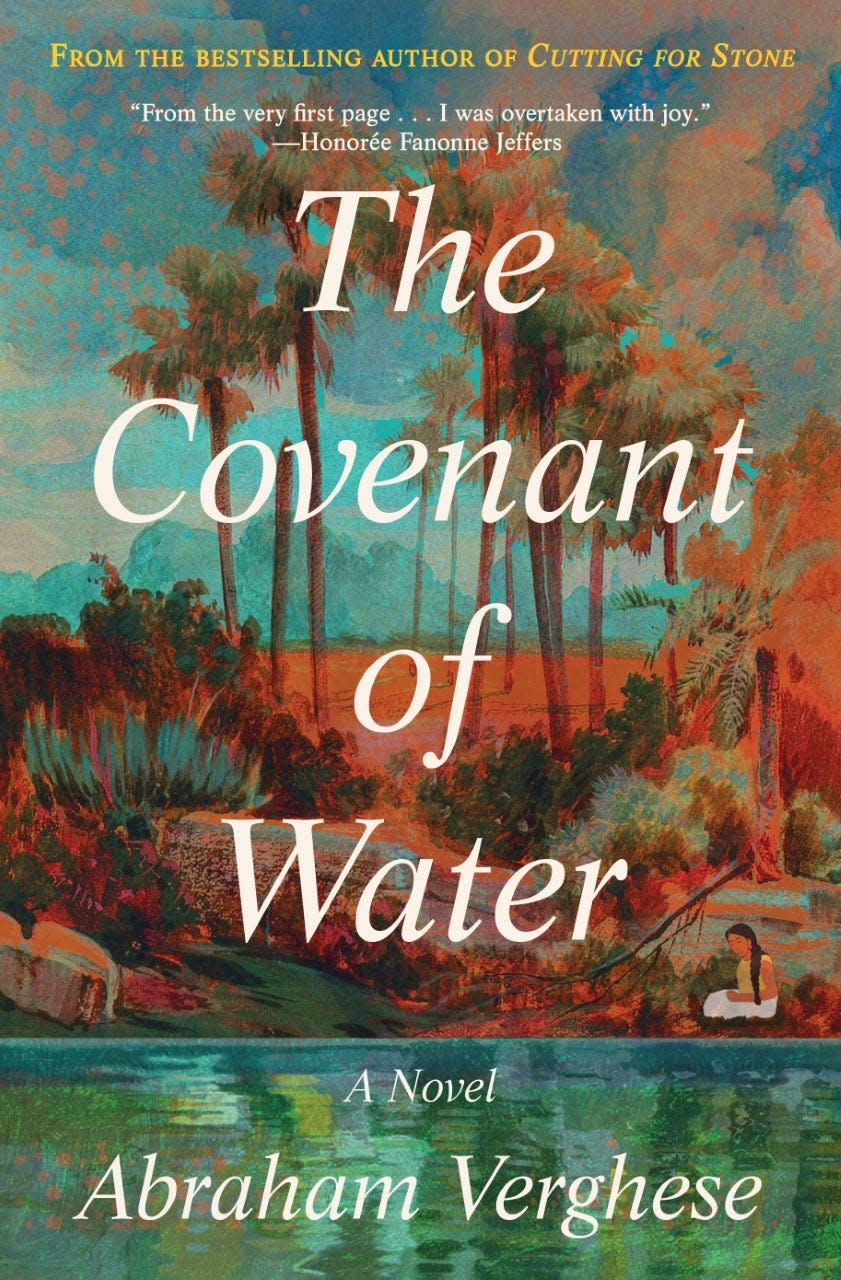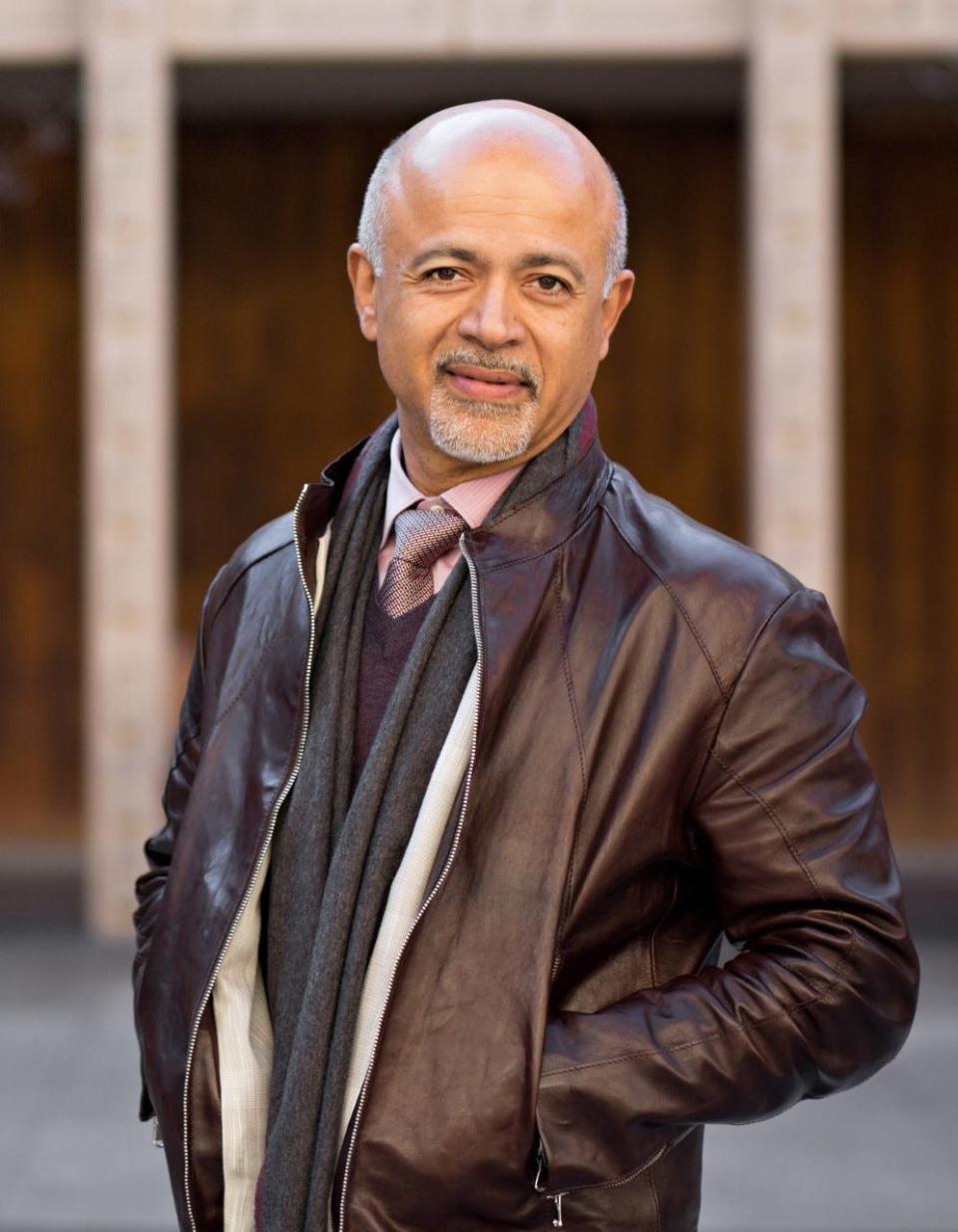In 'The Covenant of Water,' the divine is always near
As a proud Iowan South-Indian-American, I don’t consider myself a particularly religious person. Sure, I learned some Carnatic classical music as a rite of passage and as a result get emotionally high when I hear musicians sing soulfully on the Hindu deities. But I would not say that I pray every day to the point where I believe that my success rests on my faith. But it does.
That last sentence — it’s not entirely what I believe, but I wrote it anyway. While I was reading New York Times bestseller "The Covenant of Water," by Iowa Writers' Workshop-trained Dr. Abraham Verghese, something about the book was gnawing at me the whole time: guilt mixed with a sense of wonder. It wasn’t the intricate anatomical descriptions of childbirth, leprosy, or infection. Nor was it keeping track of all the characters I had to meet. Nor was it being transported without moving an inch to my motherland of Chennai. Rather, it was how much and how vividly the characters referenced religion. How is this entire plot not unfolding in a convent? Why does Big Ammachi keep whispering to God?

One cannot read "Covenant of Water" without thinking about a divine authority’s presence in the sight of nature tainted by humankind. For example, when I shared in Dr. Digby Kilgore’s — the novel’s Scotland asylee and surgeon-artist’s — pining for companionship, I couldn’t help but think that God had somehow calculated every chisel of every stone thrown his way and purposefully formulated the chemistry he achieves with loved ones to be fleetingly reclaimed. In contrast, Big Ammachi — who suffers more than her fair share of heartbreak — rises by raising others when the situation cannot be more dire because faith is water that sustains her existence.
There’s no question that "Covenant" is a feminist work. Not just Big Ammachi but also her successors Mariamma and, to a degree, Elsie, are reminders that women with faith can be brilliantly humble, timidly courageous, messily beautiful, and above all, emotionally intact. While the centrality of the novel is a “Condition” that causes generational drowning, I was more driven to the nature of the characters rather than the pace of plot when it came to reading this spiritual experience. Even Verghese’s lyrical descriptions of India’s Marina Beach (which I have indeed visited many times) led me to search for a source of almighty that is so omnipotent and so intellectual.
I subscribed to "Covenant" for the biomedical science intermixed with storytelling, but I flipped the final page thinking about how this indescribably beautiful blend may have indeed been concocted by divine authority. Verghese writes with description, without desperation, and withholding judgement on good versus evil — his use of language is river of its own. He spills a semi-biographical story through which an Indian American can come to understand how little they understand about the ways in which colonization knit together communal practices during India’s British occupation. And, most importantly, he worships through his female protagonists the ideal of fighting the fires of fear, uncertainty, and heartbreak with water that is faith.

Having grown up near the Mississippi River in Dubuque, Iowa, I know that the next time I walk its boardwalk, I am going to be reminded of "Covenant." As someone who has finally returned to Iowa City — the place I was born in and the place I call home — I was thrilled to learn that Verghese pursued his MFA at the Iowa Writers' Workshop. Although this book isn’t about Iowa, after reading this novel, I felt my homes (both Iowan and Indian) magnetically pulled into one identity across rivers and oceans. These converged into an overflowing appreciation of what health care can learn from literature, history, and religion that it cannot learn from science alone.
Sibani Ram is a recent graduate of Duke University who grew up in Dubuque.
See the author
Dr. Abraham Verghese will read from "The Covenant of Water" at the Iowa City Public Library at 7 p.m. Sept. 13.
This article originally appeared on Des Moines Register: In 'The Covenant of Water,' the divine is always near

